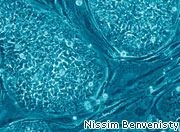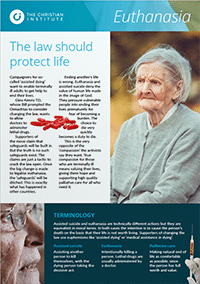Scientists have offered hope to people who suffer from blindness and brittle bone disease, as a result of promising new techniques using adult stem cells.
Researchers at universities in the UK and Japan have praised the potential of three adult stem cell techniques for helping people with age-related macular degeneration (AMD), and osteoporosis.
The progress affirms the greater effectiveness of adult stem cell research compared to controversial embryonic stem cell research, which also involves the destruction of human embryos.
Effective
A team of researchers at the University of Southampton have discovered special stem cells in the human eye which can be altered to pick up light.
They are hopeful that implanting the cultured stem cells in a damaged eye could reverse blindness.
Professor Andrew Lotery, a Consultant Ophthalmologist at Southampton General Hospital, said: “These cells are readily accessible, and they have surprising plasticity, which makes them an attractive cell resource for future therapies”.
Exciting
In Japan, a woman with visual impairment became the first person to undergo medical treatment using a new adult stem cell technique.
Mike Cheetham from the Institute of Ophthalmology at University College London, commented: “It’s an exciting development and we await the outcome over the next year to see how well these cells integrate”.
Another stem cell technique showing promise is ‘liquid bone tissue’, developed by scientists at the University of Nottingham.
Optimism
It is hoped that the tissue, made from stem cells found in bone marrow, can be injected into specific areas of concern in order to trigger new bone growth.
Dr Ifty Ahmed, a researcher at the University, spoke optimistically saying: “If it works, this kind of treatment could be done in a day.”
Adult stem cells are viewed as advantageous over embryonic stem cells because they release chemicals which encourage natural repair.
Chief Executive of the Christian Medical Fellowship Dr Peter Saunders has said: “It is a tragedy that British scientists have wasted so much time, money and energy exploring the dead end street of embryonic stem cell research”.


